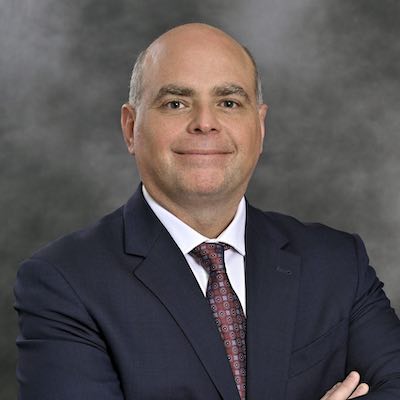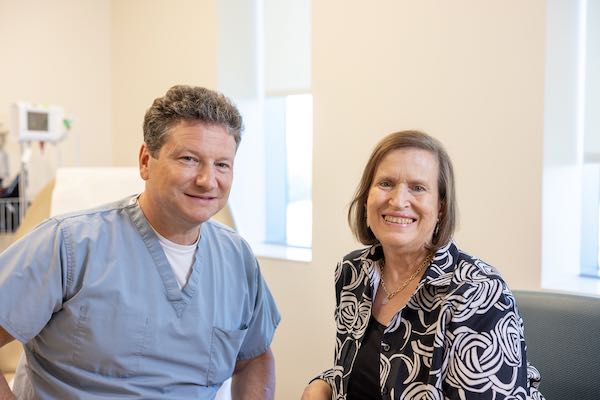What Parents Can Expect From Fetal Echocardiography
- Details
- Written by: Joanne Wallenstein
- Category: Health
 Pregnancy is full of excitement – and sometimes worry. If an ultrasound raises questions about a baby’s heart, or there’s a known risk factor, expectant mothers may be referred for a fetal echocardiogram. While this can feel intimidating, it is often a reassuring step that helps families understand their baby’s health and plan for the future.
Pregnancy is full of excitement – and sometimes worry. If an ultrasound raises questions about a baby’s heart, or there’s a known risk factor, expectant mothers may be referred for a fetal echocardiogram. While this can feel intimidating, it is often a reassuring step that helps families understand their baby’s health and plan for the future.
A fetal echocardiogram is a specialized ultrasound that examines a baby’s heart before birth, explains Dr. Marise D’Souza, a pediatric cardiologist at the Children’s Hospital at Montefiore who sees patients at White Plains Hospital’s Pediatric Specialty Center. It provides detailed images that show how the heart is structured and how it’s functioning while the baby is in the womb.
Why a Fetal Echocardiogram May Be Recommended
Most women receive a routine anatomy ultrasound during pregnancy. A fetal echocardiogram is only recommended when there’s a reason to take a closer look, such as:
• An abnormal finding on routine ultrasound, such as one side of the heart or a valve looking smaller than expected
• Family history of congenital heart disease
• Maternal conditions like lupus or Sjögren’s syndrome
• Certain medications or exposures, or certain medical conditions such as diabetes or autoimmune conditions
• Difficulty visualizing the heart clearly on a standard ultrasound
The good news is that most fetal echocardiograms show the heart is developing normally, which can bring enormous relief.
What Happens During the Exam
Fetal echocardiography is noninvasive and safe for both parent and baby. During the exam, the cardiologist evaluates:
• Heart chambers
• Valves
• Blood vessels
• Heart rhythm
Parents also have time to ask questions and get clear, compassionate explanations.
Dr. D’Souza emphasizes that the goal isn’t just diagnosis, it’s preparation. Early detection allows families and care teams to plan for the best possible outcome.
Detecting a heart condition before birth gives families time to learn about the condition in advance, explore treatment options, and plan for delivery in the safest setting if specialized care or surgery are needed after the baby’s birth.
Care Close to Home
Having access to fetal echocardiography locally helps reduce stress. For more complex cases, providers can coordinate care seamlessly within the Montefiore Health System, ensuring babies receive advanced care while families stay close to home.
Whether the exam rules out serious heart disease or identifies a condition needing treatment, the goal is the same: supporting babies, children, and families with expert care, clear communication, and compassion. Dr. Marise D’Souza is pediatric cardiologist at the Children’s Hospital at Montefiore and sees patients at White Plains Hospital’s Pediatric Specialty Center. To make an appointment, call 914.849.5437.
Dr. Marise D’Souza is pediatric cardiologist at the Children’s Hospital at Montefiore and sees patients at White Plains Hospital’s Pediatric Specialty Center. To make an appointment, call 914.849.5437.
The original version of this article was published in Health Matters, a White Plains Hospital publication.
Coronary Artery Disease: A Silent Threat to Heart Health
- Details
- Written by: Joanne Wallenstein
- Category: Health
 Submitted by Gregory Pontone, MD, MBA, Cardiology at White Plains Hospital
Submitted by Gregory Pontone, MD, MBA, Cardiology at White Plains Hospital
Coronary artery disease (CAD), also known as atherosclerosis, is the most common form of heart disease. According to the CDC, it claims the lives of an estimated 375,000 Americans each year.
Often described as “hardening of the arteries,” CAD develops slowly, sometimes over decades. It occurs when plaque continues to accumulate inside the arteries that supply blood to the heart, narrowing them and limiting blood flow.
Because this buildup happens gradually, the risk of CAD increases with age. A November 2025 report published in the American Heart Association’s Circulation journal found that adults age 75 and older account for up to 40% of hospitalizations for acute coronary syndrome (ACS). Often the result of CAD, ACS occurs when plaque suddenly ruptures, forming a clot that blocks blood flow and can trigger a heart attack.
Hidden Dangers
One of the most dangerous aspects of CAD is how quietly it can develop. The disease may be present for years—in rare cases, even in children—without causing noticeable symptoms. When symptoms do appear, such as chest pain or shortness of breath, they often don’t emerge until someone is in their 60s or later.
Even then, symptoms can be subtle or intermittent and may be mistaken for other conditions, including anxiety, allergies, emphysema, or even a collapsed lung. Unfortunately, for many people, the first sign of CAD is a sudden heart attack. This is why regular medical checkups are so important.
Who Is at Risk?
Several risk factors for CAD can be modified or managed.
These include:
• High blood pressure
• Diabetes
• Smoking
• Physical inactivity
Family history also matters, particularly if a parent or sibling has had CAD. Men are generally at higher risk, although a woman’s risk increases after menopause due to hormonal changes.
How CAD Is Detected
Assessing your risk for CAD can be straightforward. A routine blood test can reveal diabetes, plaque-related proteins, and abnormal levels of low-density lipoprotein (LDL, the “bad” cholesterol) and high-density lipoprotein (HCL, the “good” cholesterol).
Noninvasive tests such as chest X-rays, electrocardiograms (EKGs), and cardiac positron emission tomography (PET) scans of the heart can also reveal CAD.
Another valuable tool is a coronary calcium score, a specialized CT scan that measures calcification in the arteries to estimate your risk of a heart attack over the next 10 years:
• Mild risk: 1–100
• Moderate risk: 100–300
• Severe risk: Above 300
A severe score—sometimes reaching several hundred—signals the need for prompt action, including major lifestyle changes, medications, additional tests, and possibly stenting or a bypass.
Next Steps
If a person’s case of CAD is found to be especially concerning, there are several prudent treatment options. These can range from taking medications to undergoing surgery. If you are concerned that you may be at risk for, or already have, CAD, ask your doctor to perform an EKG, bloodwork, and/or a calcium score test. Early detection can make a life-saving difference.
 Dr. Gregory Pontone is the Acting Chief of the Cardiology Department at White Plains Hospital. He is a noninvasive cardiologist, and also serves as the Associate Medical Director of Ambulatory Quality & Physician Services. To make an appointment, call 914-849-4800.
Dr. Gregory Pontone is the Acting Chief of the Cardiology Department at White Plains Hospital. He is a noninvasive cardiologist, and also serves as the Associate Medical Director of Ambulatory Quality & Physician Services. To make an appointment, call 914-849-4800.
Health Matters
The original version of this article was published in Health Matters, a White Plains Hospital publication.
Breathing Easier by Staying Ahead of Pneumonia
- Details
- Written by: Joanne Wallenstein
- Category: Health
 (Submitted by Dr. Christopher Robles, Family Medicine, Primary Care)
(Submitted by Dr. Christopher Robles, Family Medicine, Primary Care)
Most of us have heard of pneumonia, but do we really know what it is and, more importantly, how to protect ourselves against it?
Pneumonia is an infection of the lower respiratory tract that causes the lungs’ air sacs to become inflamed and fill with fluid, making it harder to breathe. Symptoms include cough, fever, chills, and shortness of breath.
How serious is pneumonia? According to the latest available statistics, approximately 1.5 million American adults are diagnosed with it each year, leading to around 1 million hospitalizations and 50,000 deaths.
The most prevalent form of pneumonia—estimated to account for as many as 50% of all cases—is viral. The influenza virus is one of the most typical causes in adults, while respiratory syncytial virus (RSV) is the most common cause in young children. Fortunately, viral pneumonia often can clear up on its own.
The second most frequent is bacterial pneumonia, which can be more severe and usually requires antibiotic treatment.
Pneumonia is often believed to be an “older person’s disease.” Although adults aged 65 and older are at a higher risk due to weakening immune systems and, in many cases, having medical conditions like COPD, asthma, and chronic kidney or liver disease. Children aged 0-2 are equally susceptible due to their still-developing immune systems.
This is not to say that people outside of those age groups cannot get pneumonia; in fact, everyone can get it. Exacerbating factors include:
• Pre-existing medical conditions like those listed above.
• Health-compromising behaviors like smoking or substance abuse, including alcohol, marijuana, cocaine, and opioids.
• Your environment. Long-term exposure to contaminated water, surfaces, and polluted air can leave you more susceptible to disease-causing germs, as can being in a situation where infected people are coughing, sneezing, or even breathing.
Reducing Your Risk
You can contract pneumonia at any time of the year, making the need to protect yourself even more important. My tips for reducing your risk:
Get vaccinated. Many people are unaware there’s a vaccine for Streptococcus pneumoniae—the bacteria that can cause pneumonia as well as meningitis and various ear and sinus infections. It has been estimated that a vaccination can significantly reduce the risk of developing the disease.
• The CDC recommends pneumococcal vaccination for children younger than 5 and adults aged 50 and older (the latter was lowered in 2024 from 65 and older).
• As with the flu vaccine, the pneumococcal vaccine is covered by most insurance. A single dose usually provides lifelong protection for adults.
Follow healthy habits.
• Wash your hands frequently.
• Disinfect frequently touched surfaces.
• Eat a healthy diet, get rest and regular exercise.
• Try to avoid people who are sick.
• Avoid smoking. Not only should you not smoke, you should also limit your exposure to secondhand smoke.
Finally, continue to manage your other chronic medical conditions. This includes regular monitoring of those conditions and being extra cautious when dealing with any additional respiratory symptoms.
Pneumonia is serious but often preventable. Know the signs, act quickly if symptoms appear, and take simple steps like vaccination and good hygiene to protect yourself. Early action can make all the difference; breathe easier by staying informed. Dr. Christopher Robles is a family medicine and primary care physician, seeing patients at the Somers and White Plains locations. To make an appointment, please call 914-849-7075.
Dr. Christopher Robles is a family medicine and primary care physician, seeing patients at the Somers and White Plains locations. To make an appointment, please call 914-849-7075.
Health Matters
The original version of this article was published in Health Matters, a White Plains Hospital publication.
Octogenarians on the Court
- Details
- Written by: Joanne Wallenstein
- Category: Health
 Heidi King and Constance VaughnThe USTA calls tennis the "sport of a lifetime," emphasizing that there's no upper age limit to enjoying it. And that’s clear about platform tennis as well.
Heidi King and Constance VaughnThe USTA calls tennis the "sport of a lifetime," emphasizing that there's no upper age limit to enjoying it. And that’s clear about platform tennis as well.
Founded in 1896, Fox Meadow Tennis Club was the first paddle tennis club in the country, and while not as old as the club, some members have been enjoying the sports for decades, playing well into their eighties.
However, paddle tennis also known as platform tennis is not easy on the body. The wood court is hard on knees and the back, twisting, turning and pummeling the ball can cause injuries to tendons and pull muscles and players often fall and break limbs.
But none of that has stopped a dedicated group of 85 year-old plus racquets players from enjoying games several times a week at Fox Meadow Tennis Club, switching between tennis and paddle as the seasons change.
They are out in all conditions – undeterred by coldest days, wind and snow.
How have they managed to keep playing for decades beyond their peers?
We asked Gingie Green, Heidi King and Connie Vaughn, all members of Fox Meadow Tennis Club, for the secret to their longevity and here is what they shared.
Both Heidi and Gingie are lifelong racquets players. Heidi, who hails from Germany, learned to play tennis at a private club with a pro – as there were no public courts at the time.
Gingie learned to play tennis from her grandmother and mother at Century Tennis Club in her early teens. She went on to play for the Scarsdale High School tennis team in the 1950’s. She reports, “it was not so competitive in those days.”
Connie did not start to play tennis until she was in her late thirties where she learned with a few friends. She moved to Scarsdale in 1976 and joined Scarsdale Golf Club  Gingie Greene and Jim Vernawhere she played mostly singles (tennis) because she was still working. In 1985 she also joined Fox Meadow Tennis Club and continued to play singles into her eighties.
Gingie Greene and Jim Vernawhere she played mostly singles (tennis) because she was still working. In 1985 she also joined Fox Meadow Tennis Club and continued to play singles into her eighties.
Heidi says she “loves being outside and hitting the ball in the sweet spot of her racket.” She says, “tennis is an elegant, classy sport which I like.” Connie says, “I love the exercise, the competition and even the exhaustion after a long match.” And Gingie reports she likes the exercise, challenge, and being with friends.”
How to they avoid getting injured? Connie says, “I exercise pretty regularly and stretch before I play. I had shoulder replacement but never had a tennis injury. I also take lots of vitamins and drink very little.”
Heidi says, “I do try not to fall, but basically one is taking a chance I suppose, but I'm willing to take that chance because I love being outside and hitting the ball (but I don't like competition.) She added, “Playing is absolutely good for one's health. My blood pressure is always lower on days when I play!”
So what can we learn from these three? Drink less, play more and keep your fingers crossed that you have the good fortune to live a long and active life.
Hope Restored: One Patient’s Hyperparathyroidism Comeback
- Details
- Written by: Joanne Wallenstein
- Category: Health
 Hyperparathyroidism, a hormonal disorder caused by overactivity in one or more of the body’s four parathyroid glands, affects about 100,000 people in the U.S. each year. Though it can occur at any age, the condition is three times more common in women than in men, with menopause being a key risk factor, according to the National Institutes of Health.
Hyperparathyroidism, a hormonal disorder caused by overactivity in one or more of the body’s four parathyroid glands, affects about 100,000 people in the U.S. each year. Though it can occur at any age, the condition is three times more common in women than in men, with menopause being a key risk factor, according to the National Institutes of Health.
The disorder raises calcium levels, which can cause symptoms such as bone and joint pain, osteoporosis, kidney stones, gastrointestinal issues, fatigue, anxiety, irritability, brain fog, and depression—symptoms often mistaken for normal aging. Hyperthyroidism can also increase the risk of developing long-term heart disease.
Westchester resident Carine Feist, MPH, began noticing joint pain, severe heartburn, and fatigue last fall. “After a full night’s sleep, I’d still be physically exhausted and ready for a nap by 10 a.m.,” she says.
A medical research reviewer with a background in public health, Feist has been proactive with her medical care and was already monitoring her bone density due to a history of osteopenia. When her symptoms persisted, she went to her family physician, who found her calcium levels to be abnormally high. Further blood tests confirmed hyperparathyroidism.
She was then referred to Dr. Kaare Weber, an endocrine surgery specialist who is Chief of Surgery and Associate Medical Director of Surgical Services at White Plains Hospital. “He exuded confidence and exceptional ability,” Feist notes. “He told me, ‘We will get you better.’ That’s what you want to hear when you’re having a procedure.”
Dr. Weber, who has performed more than 1,000 hyperparathyroidism surgeries, says modern imaging has revolutionized treatment. “We can now localize the parathyroid glands before surgery using tools such as high-resolution ultrasound, sestamibi scans (an imaging test for overactive parathyroid glands), or 4-D CT,” he says. “This precision allows minimally invasive outpatient procedures with very low risk, faster recovery, and significant improvement in quality of life.”
In Feist’s case, the imaging showed that only one gland needed to be removed. Following her March 2025 surgery, she experienced life-changing improvements overnight. “I didn’t have fatigue, and I didn’t have to rely on Tums anymore,” she says.
An avid traveler, she’s now planning a trip to Iceland with her 93-year-old mother—a journey that seemed impossible just months ago.
“Seeing patients regain their energy and return to their passions is one of the most rewarding aspects of treating hyperparathyroidism,” Dr. Weber says.
Need a physician? To find the right provider for your needs, visit our online physician directory.
Health Matters
The original version of this article was published in Health Matters, a White Plains Hospital publication.






